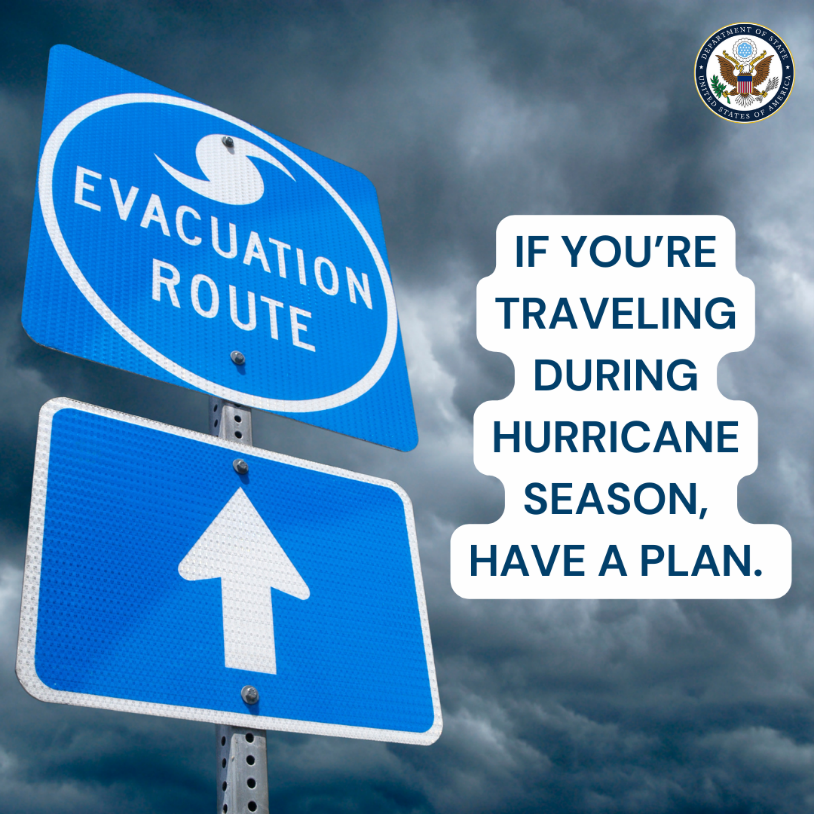The U.S. Department of State has no higher priority than the safety and security of U.S. citizens overseas, and we want to help prevent U.S. travelers from encountering common international travel pitfalls.
- Visit travel.state.gov/destination to look up your destination and review the “local laws & special circumstances” section to learn what you are and are NOT allowed to bring.
- Sign up for the Smart Traveler Enrollment Program (STEP).
- Avoid common pitfalls:
- Packing ammunition (even accidentally)
- Packing prohibited medications (including CBD and THC products)
- Being pickpocketed
- Not purchasing travel insurance
- Not paying attention to passport expiration dates
- Traveling during storm seasons without a plan
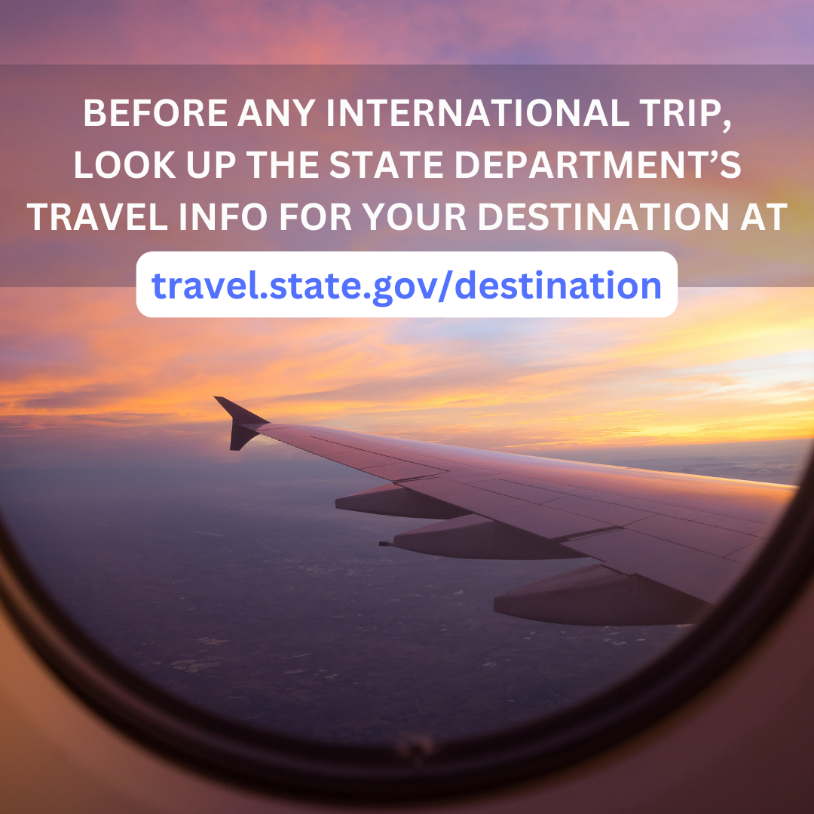
State Department Resources:
travel.state.gov/destination
If you plan to take a trip overseas, look up @travelgov’s country-specific information for your destination at travel.state.gov/destination. You can check the travel advisory level, find passport and visa requirements, learn about banned items, and save the contact info for the nearest U.S. embassy all in one place.
Smart Traveler Enrollment Program (STEP)
For peace of mind while traveling abroad, sign up for @travelgov’s Smart Traveler Enrollment Program (STEP). This will help the nearest U.S. embassy contact you in an emergency. Enroll your next trip at step.state.gov.

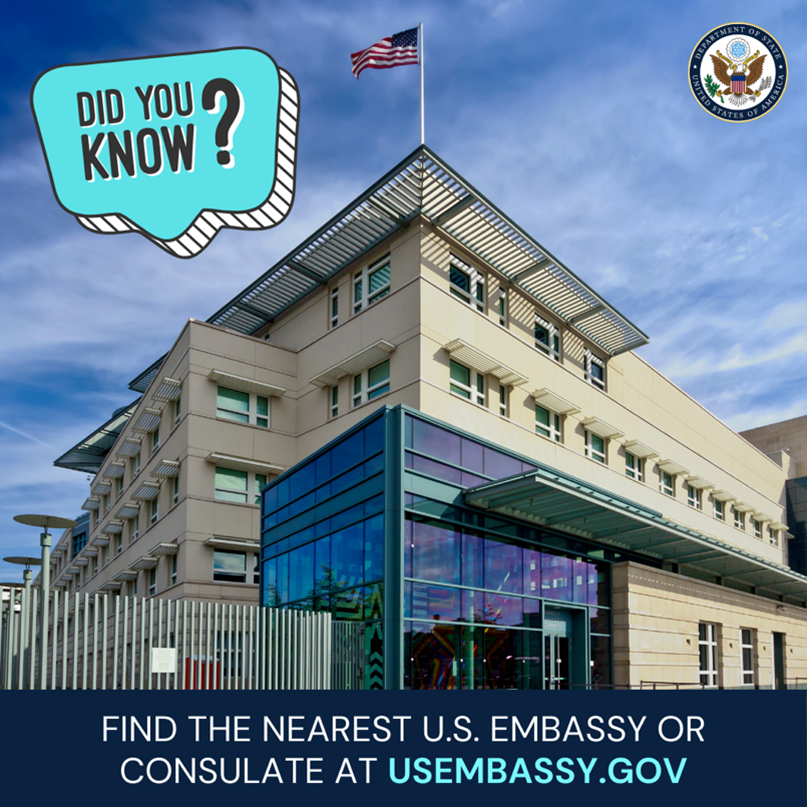
Did you know that U.S. citizens traveling overseas can contact the closest U.S. embassy or consulate in an emergency, such as a lost passport or an arrest? Find the contact info for the nearest embassy or consulate at https://www.usembassy.gov/ and save in it your phone just in case.
Prohibited Medications
Some medications, including CBD products, that are legal in the United States are prohibited in certain countries overseas and could result in your arrest. Always look up your destination at travel.state.gov/destination before traveling international to know what you can and CANNOT bring.


Pickpocketing
U.S. citizens are common pickpocketing targets when traveling overseas. Avoid hanging your bags on the back of chairs or setting your phone out on tables in public. Keep an especially close eye on your belongings in train stations and public squares. Check @travelgov’s info page for your destination at travel.state.gov/destination to see if this is a well-known problem at your destination.
Lack of Travel Insurance
Most U.S. health insurance policies, to include Medicare and Medicaid, do not cover medical costs overseas. Medical evacuations can cost upwards of $100k. Check to see what your insurance covers and consider getting supplemental travel insurance before traveling internationally.
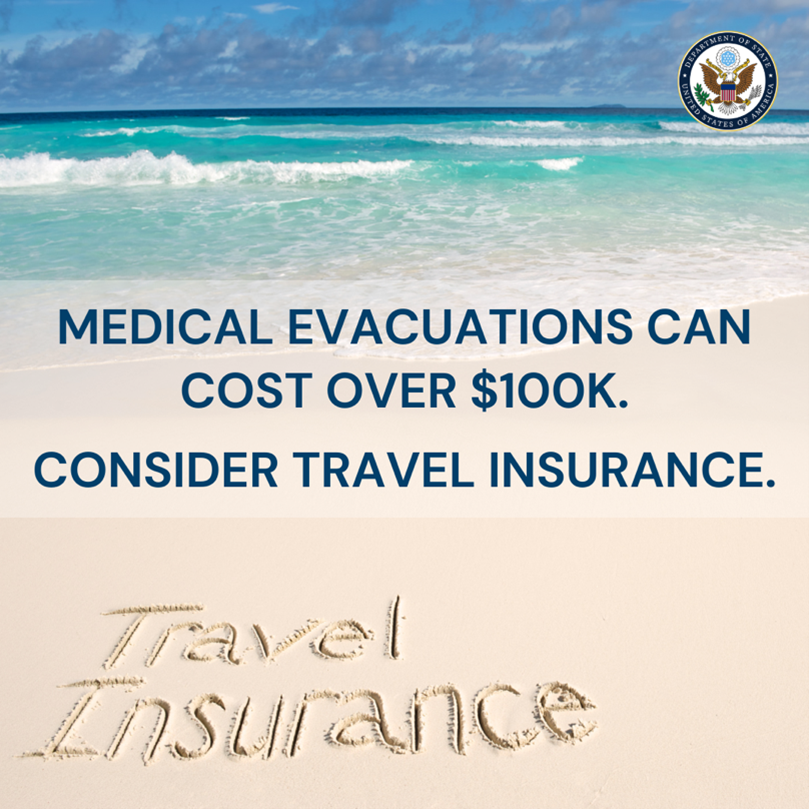
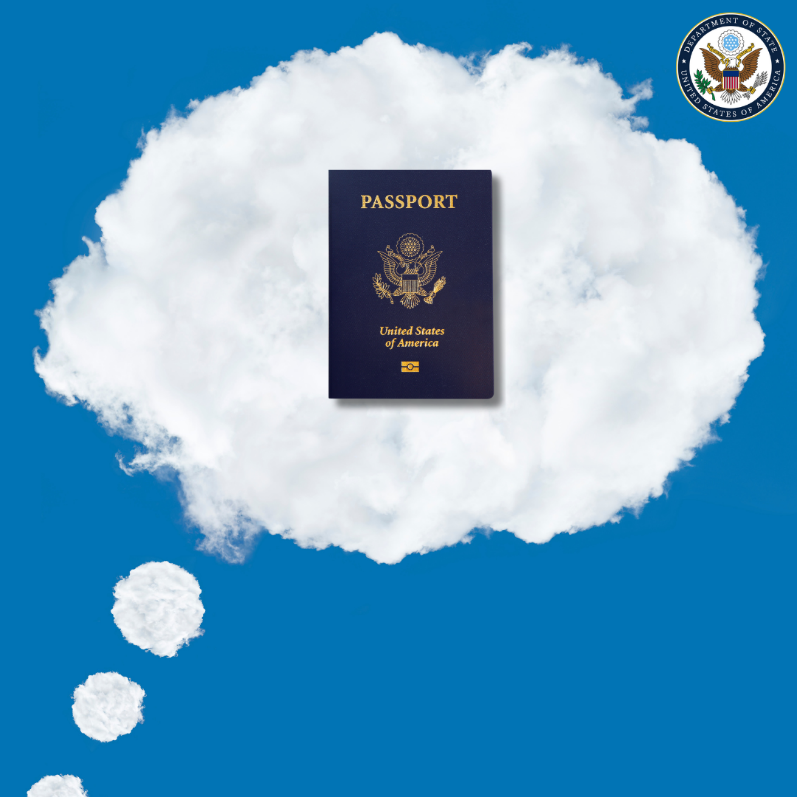
Expired Passports
Thinking about traveling internationally? Be sure to check your passport expiration date before booking tickets. Many countries require passports to have at least six months validity remaining in order to enter. Learn how to apply or renew at travel.state.gov/passport.
Storm Season Travel
If you’re traveling to a hurricane prone area, make sure you have a plan. Minor storms can quickly develop into major weather events. Monitor weather reports closely and keep an emergency kit ready with your passports, important documents, and local currency in cash in a watertight plastic bag. Learn more at travel.state.gov/crisis.
